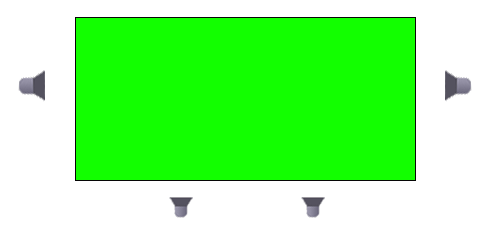Turn any device that doesn't have a light into an online virtual flashlight or strobe light. For the best flashlight or strobe light effect, make sure your screen brightness is set to 100%. This is a handy utility when you need a reading light or strobe light in a pinch. Banish glare: When light strikes your laptop's screen, you can get an annoying reflection. This becomes an even bigger issue as we age. “Our lenses get thicker, and the protein structure of the lenses changes, both of which increase blue light scatter,” says Figueiro, who compares it with watching a movie in a theater with the lights on. Some PCs can let Windows automatically adjust screen brightness based on the current lighting conditions. To find out if your PC supports this, go to Settings System Display. Under Brightness and color, look for the Change brightness automatically when lighting changes check box, and then select it to use this feature. Turn off the light and enjoy! With Screen Flashlight you can illuminate darkness with your phone also its good for reading in dark rooms.This simply lights up your screen at full brightness.
Light sensitivity and glare are common problems for people with glaucoma. Patients who experience light sensitivity typically feel discomfort from sunlight, incandescent light and/or fluorescent lights. Halogen lights, like those used in car headlights and fluourescent lighting or fixtures can cause an uncomfortable glare for those with glaucoma. Here are some tips for driving and working at your computer – two scenarios impacted by glare and light sensitivity

Patio Screen Lights

DRIVING WITH GLAUCOMA
Many glaucoma patients choose to avoid night driving due to the headlight glare that makes is difficult to see well. Warning signs that driving may be dangerous include: loss of peripheral vision (making it difficult to see and react in time to avoid obstacles like other cars and pedestrians coming from the side); blurred vision (making it harder to distinguish clear images and see movement such as passing cars or someone crossing the street); increased light sensitivity, (making it more difficult for your eyes to adjust from headlight glare at night); and close calls (because of a failure to notice obstacles in the road).
Here are two resources that can help you evaluate your driving skills.
American Association of Retired Persons
Driver Safety Program
http://www.aarp.org/families/driver_safety/
800-424-3410
AAA Foundation for Traffic Safety
Drivers 65 Plus: Test Your Own Performance.
Available as a brochure and other information is available at
https://seniordriving.aaa.com/
(202) 638-5944
Screen Light Iphone
If you choose to continue to drive be sure to:
Screen Lights Indoors
- Select proper glasses for both day and night driving. Darkened or polarized lenses can be helpful in blocking glare in daytime driving or during outdoor activities like fishing, skiing or riding a bike. But when driving at night, the eyes need to adapt to darker natural conditions. If you wear glasses, keep them clean.
- Avoid wide-temple frames, which can interfere with side vision.
- When you buy a car, choose a clear windshield and keep your windshield clean, inside and out. People often forget the importance of wiping off the inside of the windshield, which is easily smudged.
- Maintain and clean off your headlights, which can get coated with road grime.
- Make sure your windshield wipers are in good condition and change them as needed.
- Keep pace with the flow of traffic.
- Be alert. Keep eyes on the road ahead but check each side of the car for vehicles, children, animals or other hazards. Move your head and eyes frequently from side to side and glance often at the rear view, side mirror and instrument panel.
WORKING AT YOUR COMPUTER
Screen Lightshot

Screen Light Bar
Extended time on the computer jeopardizes even the healthiest of eyes. This is magnified for people with glaucoma. A few tips might help.
Screen Light Glasses
- Glare problems can be reduced with a good filter that fits over your screen.
- Before selecting a permanent position for your computer, check out the effect of light on the screen. Avoid facing the window. Light streaming from outside creates glare and interferes with your view of the screen. Light from a window behind you may also worsen glare.
- Overhead lighting may also produce glare. Try illuminating your screen with desktop lighting, focused directly on your work.
- Arrange your monitor in such a way that you gaze down at a 15 degree angle, which is easier on your eyes.
- Avoid staring at your screen – Look around, e.g. out of a window or at a far wall. And remember to blink. Not blinking can promote dry eyes.
